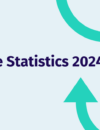
Times are tough. You don’t need us to tell you that. We’re heading deeper and deeper into a cost of living crisis. Our disposable incomes are decreasing as bills and prices soar. High inflation and rising taxes are overtaking our wages and benefits. We are, undoubtedly, heading for a very difficult winter.
It’s hard to keep on top of everything that’s increasing in price. Whether it’s your energy bills, groceries, fuel, broadband costs or even entertainment packages (thanks, Netflix), the cost of everything is soaring. Last month, Cornwall Insight forecast annual energy bills of £5,300 a year from January 2023, and the Office for National Statistics (ONS) has reported that inflation in July stood at 10.1% – a huge difference from the 2% we saw one year earlier.
No wonder we’re all talking about how to make ends meet, how to cut back, and how to get through the coming months.
However, while we are ‘all in this together’, we have to remember we all have very different circumstances. As the saying goes, we’re in the same storm, but travelling in different boats; we’re all facing this same situation, but we all have different means of support.
This crisis is going to have an impact on us all; but as always, it’s not all equal.
Undoubtedly, those with lower incomes will have a very different experience than those earning a high wage. The Institute For Government states that “poorer households are currently experiencing higher inflation – on average – than better-off households.” Those living in the most deprived parts of England, for example, are more likely to self-impose limits on food and essentials than the average household. This is mirrored by renters too, in comparison to those with a mortgage, while older generations (between 55 and 74 years) are more likely to reduce their energy use.
Additionally, low-income households already pay more than high-income households for essentials like energy because of something called the ‘poverty premium’, which itself is a vicious cycle: the poorer you are, the more you pay – and so the poorer you become.
It’s not all about income, either. Disabled people are more likely than non-disabled people to reduce their outgoings on food and essential items – around 4 in 10, according to the ONS. Furthermore, anyone living with medical conditions or additional needs will really feel the sting, with prices rising for transport, medication, equipment and running costs.
These dire situations will naturally have knock-on effects. Finances could come under even more long-term pressure if people turn to loans and credit cards to help with their soaring outgoings. Debt will rise, as will susceptibility to scammers and fraudsters. Again, this hits deprived households the hardest. We could see the impact on people’s health, and we’re already hearing – or experiencing – rising demand at food banks, with some full-time workers still finding that their wages just aren’t enough.
People are now calling for urgent support and action from those in charge. Martin Lewis, the Money Saving Expert and financial journalist, who was once our go-to man for couponing and thrifty supermarket tips, is just one of the loudest voices demanding more from our leaders and our energy suppliers.
Newspapers and websites are full of (often baffling) handy hints for saving energy and money, and even This Morning was recently slammed for turning the crisis into an entertainment segment, giving viewers the chance to have their bills paid for a few months.
So what help is actually available?
Last week Liz Truss announced a new two-year Energy Price Guarantee, which will help the impact of October’s predicted 80% price rise. While we will still be paying for the energy we use, it limits what suppliers can charge per unit of energy. So, a typical household’s annual bill will be around £2,500 from October, as opposed to the predicted £3,549. This plan, while positive, still means households are facing a drastic rise – just not quite as much as expected. It has been met with mixed responses.
You might also remember Rishi Sunak’s £400 payments as part of the Energy Bills Support Scheme. Millions of households will also soon receive the second instalment of a means-tested benefits payment, the first of which was received in May. Those who have the Winter Fuel Payment can expect to get £300, and those on disability benefits will receive £150 from this month.
Fuel duty cuts, council tax rebates and an increase in the government’s Household Support Fund are all also examples of steps taken by those in charge to help those in need.
Aside from Liz Truss’s recent intervention, many of these official measures were announced earlier in the year, and since then, situations have worsened, with many businesses already closing their doors in the face of impossible bills. In the absence of more support and in the face of escalating costs, some businesses are even stepping in to offer assistance to their teams. John Lewis, for example, is offering free food, loans and bonuses to employees to soften the blow of the winter months. However, not every organisation has the capacity to do this – especially smaller, independent businesses, who themselves will be struggling to stay afloat.
Of course, there’s the additional problem that schemes designed to help everyone may not take those most in need into account. While some households require more support than others, many initiatives will treat everyone equally – which in principle is fair, but in reality, is not.
Inequality is rife at the best of times, but unfortunately this cost of living crisis is going to increase divides and make things even harder for millions of people who already struggle.
If you are in need of extra support in these tough times, there are charities and organisations out there that can offer essential help and guidance. Equally, if you wish to help others in need, and are able to do so, donations to these groups will be essential in the months ahead.
Some great examples include:
FareShare: redistributing excess food to charities that can use it to feed the hungry, tackling food waste issues and supporting those who can’t afford to eat.
The Trussell Trust: supporting food banks nationwide to support those in poverty, while campaigning to end the need for food banks in the UK.
Shelter: helping the homeless, offering housing support and advice, and campaigning against housing injustice.
Turn2us: offering free financial advice for anyone who needs it, including guidance on getting the benefits and grants you’re entitled to, and saving on rising bills.
National Energy Action (NEA): helping those in fuel poverty, offering advice and campaigning for the right to safe and warm homes.
At Druthers, it’s our mission and our passion to empower organisations to find the best person to make an impact on their work, from a diverse shortlist of remarkable talent. Get in touch with us to find out how your business can make a positive change to your hiring and retention processes.





